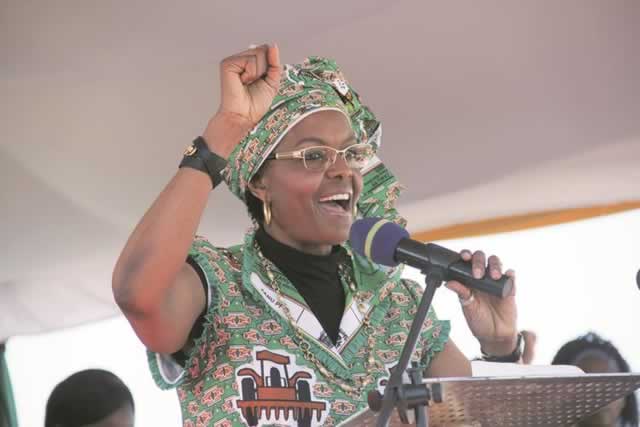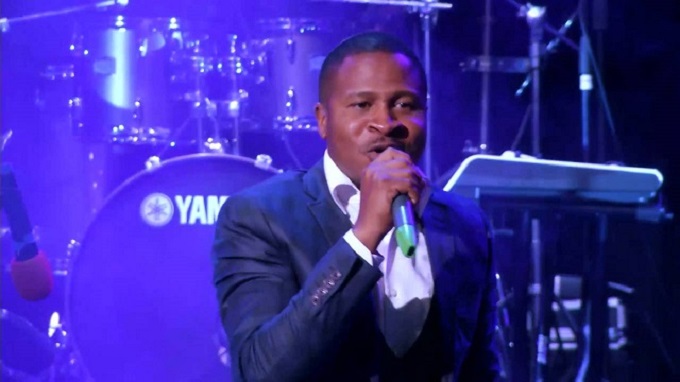Mnangagwa not Justice Minister

Daniel Nemukuyu Harare Bureau
VICE-President Emmerson Mnangagwa is not the Minister of Justice, Legal and Parliamentary Affairs, but was simply assigned by President Mugabe to oversee the functions of the ministry in terms of the Constitution of Zimbabwe, the Constitutional Court established yesterday.
Professor Lovemore Madhuku’s National Constitutional Assembly (NCA) yesterday climbed down from its position that VPs Mnangagwa and Phelekezela Mphoko were wearing two hats after being grilled by the nine-member bench.
Although the NCA contested the appointment of the two VPs to administer the functions of two ministries, the matter collapsed when the court questioned the legal basis on which VP Mnangagwa was being viewed as Justice Minister.
Advocate Michael Majuru, on behalf of the NCA, admitted that VP Mnangagwa was only sworn in as VP and that he never took oath to serve as Justice Minister.
NCA’s lawyers also conceded that the appointment of two VPs to replace Joice Mujuru was also above board.
That left the Constitutional Court with no other options but to dismiss the application with costs.
Adv Majuru made a U-turn after Deputy Chief Justice Luke Malaba questioned him on the proof that VP Mnangagwa was indeed a Minister of Justice.
He said: “If the court says the VP is not a Minister of Justice, I’ve no further submissions to make. I concede that.”
The court relied on Section 99 of the Constitution of Zimbabwe which gives President Mugabe power to assign a VP to oversee any ministry if need arises.
Section 99 reads: “The Vice-Presidents assist the President in the discharge of his or her functions and perform any other function, including the administration of any ministry, department or Act of Parliament, that the President may assign to them.”
Earlier this week, a constitutional law expert Derek Matyszak of the Research Advocacy Unit accused President Mugabe of breaking the Constitution by assigning VP Mnangagwa dual roles.
“Section 108(2) provides that a minister vacates his or her office as such upon ceasing to be a Member of Parliament,” he said.
“Mnangagwa vacated his office as Minister of Justice when he ceased to be a Member of Parliament and upon becoming Vice-President.
“However, Mugabe continues to treat Mnangagwa as the Minister of Justice (rather than merely administering various Acts, which is permitted) and he continues to be referred to as such by the government and the Press.”
Matyszak said the only way that Mnangagwa could be Vice-President and Justice Minister simultaneously, would be if President Mugabe appointed him as one of five ministers picked from outside Parliament.
“This, however, would be of dubious constitutionality on two accounts,” he claimed.
“Firstly, a Vice-President is not allowed to hold any other public office (section 103 of the Constitution) and surely being a minister is another public office.
“Secondly, even if this is not so, when Mnangagwa was appointed, Mugabe had already allocated ministries to the five people he is permitted to appoint from outside Parliament.”
The five are Joseph Made (Agriculture), Lazarus Dokora (Education), Faber Chidarikire (Mashonaland West Provincial Affairs), Martin Dinha (Mashonaland Central Provincial Affairs) and Professor Jonathan Moyo (Information).
“If Mnangagwa is added to this list, there would’ve been six, not five, ministers appointed from outside Parliament,” Matyszak argued.
His comments drew fire from Information Minister Professor Jonathan Moyo who blasted on Twitter: “Public discourse in Zimbabwe is imperiled by newspapers that carry false reports based on claims of shameless dilettantes posing as experts.
“The claim that the only way Mnangagwa can be VP and Justice Minister only if he is one of the five ministers appointed from outside Parliament is an assertion of a dilettante gleefully reported by NewsDay whose credibility is now on thin ice.”
Prof Moyo stated that “the position that the VP can also administer any ministry was publicly debated and settled in December 2014”, adding: “It’s a non-issue in June 2015. Truth is a VP can also be a minister as provided in section 99 of the Constitution which says functions of VPs include “. . . the administration of any ministry.”
Meanwhile, on the question of replacing one VP with two, Adv Majuru also agreed with the court that President Mugabe was correct and that it was lawful.
He also agreed with the court that VP Mnangagwa did not take oath as Justice Minister but only as VP.
Prof Madhuku argued that President Mugabe chose to work with one VP soon after his election and that replacing Cde Mujuru with two VPs was unlawful.









Comments